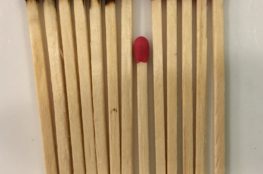“What do you need to do to take care of yourself?”
This powerful and lovely question was asked of me so many times by my favorite therapist ever, Norma. It always hit me like a warm and bracing hug.  “Oh!” My mind would reset from the panic state I was in to a calming one of self-care. “Uhmmm…. maybe I could write in my journal..”
“Oh!” My mind would reset from the panic state I was in to a calming one of self-care. “Uhmmm…. maybe I could write in my journal..”
Contrary to popular belief, this is not a selfish question, but rather, a reflection of self-love. Which by the way, is absolutely essential as a prerequisite to loving others.
Yesterday I had the honor of speaking on the phone with a woman friend who is suffering severe heartbreak at the moment. Once I was there (twice actually if I’m honest), the first time for a number of years. Wow… you’d think I would have known better, but… !
I listened, she talked, then she listened, I talked. I tried to give her a map through the heartache, while still being compassionate with her grief.
It seems to me that, in the case of love lost (a relationship), ended due to one party’s declaration that it’s not right for them, there are often two dynamics at work to create intense pain.
Grief – the honest, authentic feeling of missing the person, the activities shared, the hugs, the laughter. While you can certainly numb the pain of grief (alcohol, brownies, pizza, pot… another quick relationship/sex), the only way to clear it from your life is to go through it, tears and all.
At one time in my life I had avoided feeling the pain of rejection for so long that when I finally determined to stand in the fire and feel it I was afraid I would die from crying. No kidding. (You’re thinking I was in my teens? .. nope – in my mid-40’s if you’re wondering.)
I had done enough 12 step work, some therapy, and lots of reading about co-dependency to realize I had to stop and let the grief catch up to me. To NOT numb myself. To allow all the past rejections and hurts to catch up as well, roll them all into one to grieve.
I cried off and on for weeks. I wrote in my journal, I cried to God. I called a couple of friends. But I didn’t start a new relationship, distract myself with food or sex, or start drinking.
And I noticed something. I didn’t die from it.
I grew stronger. Through standing in the pain and the grief, I grew stronger.
That gave me courage. And the courage lessened my fear. Maybe it was just tears and pain, maybe it wouldn’t kill me.
I realized I could hold my own Irish wake – let myself keen and wail for what I’d lost.
But I had to pay attention to the second dynamic as well: Story.
I like stories. Stories can be healing, inspirational, connective. But they can also be deadly and limiting if you are caught up in a Disempowering Storyline.
For example, in the case of love lost, here’s a common storyline: I drove him away! I’ll never have anyone love me like he did. I’ll be alone the rest of my life. He was the perfect man and I screwed it up. I’m a complete loser and I can never get this right.
These stories and similar ones create the second, truly paralyzing dynamic that operates in a love-lost situation.
Unlike grief, which should be allowed to express fully in safe and supportive environments, these stories need to be outed and confronted.
Author Byron Katie’s line of questions are one of many powerful ways to confront the statements your mind is making: “I drove him away!” Is that true? Where would you be without that statement?
Journaling the untruths, the stories you are telling yourself, then praying your way to a different perception, or talking back to that voice of despair, all are empowering ways to confront this Disempowering Storyline.
Try this on. What if you said to yourself: “I really really miss him. But it’s true we weren’t a totally great fit in some areas. I’m going to practice loving myself so well I will be ready for the right partner to come along before long. I’m going to do my work and strengthen myself, find ways to love my self and my life. I refuse to tell myself stories of scarcity about partners. The right person and I will find each other!”
A cornerstone of self-care and self-love is knowing yourself and what you need. In the case of love-lost, it might be mourning, and it might be telling yourself a new story.
What do you need to do to take care of yourself?



